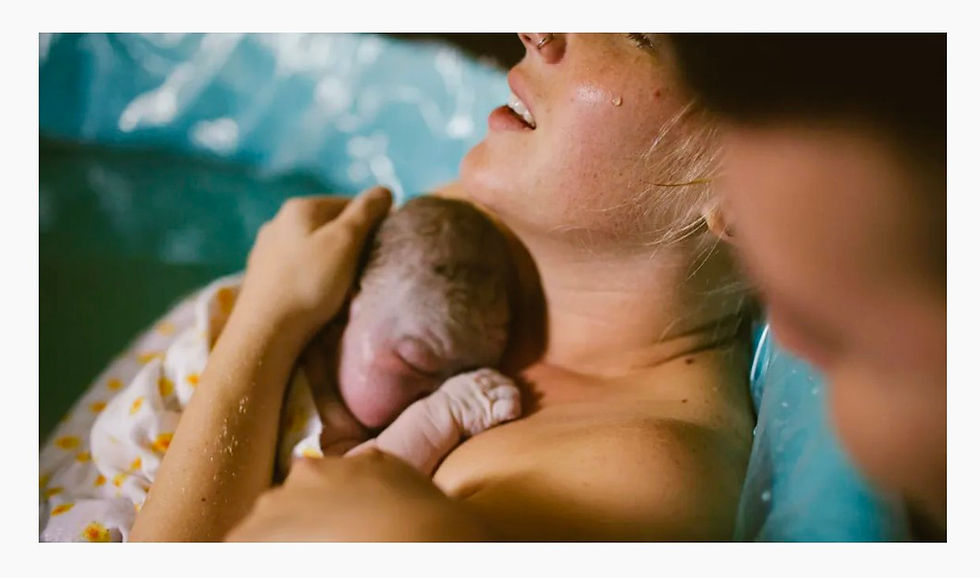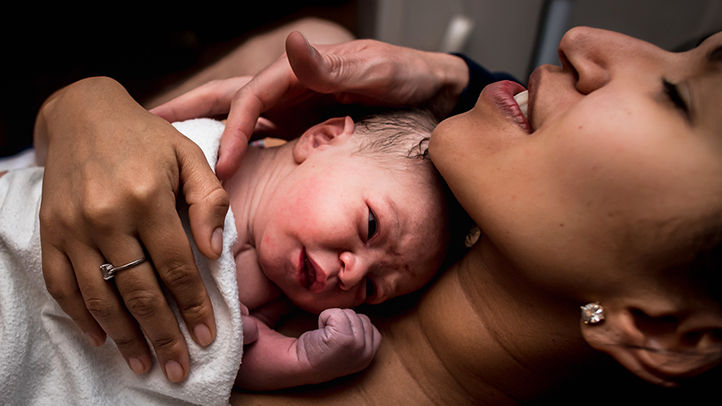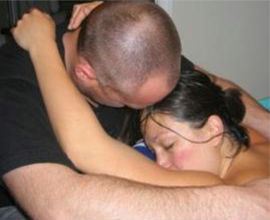Elizabeth Elliot
- farverm
- Nov 21, 2023
- 11 min read

Who is Elisabeth Elliot?
Elisabeth Elliot (née Howard; born December 21, 1926) is a Christian author and speaker. Her first husband, Jim Elliot, was killed in 1956 while attempting to make missionary contact with the Auca (now known as Huaorani) of eastern Ecuador. She later spent two years as a missionary to the tribe members who killed her husband. Returning to the United States after many years in South America, she became widely known as the author of over twenty books and as a speaker in constant demand. Elliot toured the country, sharing her knowledge and experience, well into her seventies. Elisabeth Elliot is one of the most influential Christian women of our time. For a half century, her best selling books, timeless teachings and courageous faith have influenced believers and seekers of Jesus Christ throughout the world. She uses her experiences as a daughter, wife, mother, widow, and missionary to bring the message of Christ to countless women and men around the world.
Elisabeth writes of herself:
“My parents were missionaries in Belgium where I was born. When I was a few months old, we came to the U.S. and lived in Germantown, not far from Philadelphia, where my father became an editor of the Sunday School Times. Some of my contemporaries may remember the publication which was used by hundreds of churches for their weekly unified Sunday School teaching materials. Our family continued to live in Philadelphia and then in New Jersey until I left home to attend Wheaton College. By that time, the family had increased to four brothers and one sister. My studies in classical Greek would one day enable me to work in the area of unwritten languages to develop a form of writing. A year after I went to Ecuador, Jim Elliot, whom I had met at Wheaton, also entered tribal areas with the Quichua Indians. In nineteen fifty three we were married in the city of Quito and continued our work together. Jim had always hoped to have the opportunity to enter the territory of an unreached tribe. The Aucas were in that category — a fierce group whom no one had succeeded in meeting without being killed. After the discovery of their whereabouts, Jim and four other missionaries entered Auca territory. After a friendly contact with three of the tribe, they were speared to death. Our daughter Valerie was 10 months old when Jim was killed. I continued working with the Quichua Indians when, through a remarkable providence, I met two Auca women who lived with me for one year. They were the key to my going in to live with the tribe that had killed the five missionaries. I remained there for two years. After having worked for two years with the Aucas, I returned to the Quichua work and remained there until 1963 when Valerie and I returned to the U.S. Since then, my life has been one of writing and speaking. It also included, in 1969, a marriage to Addison Leitch, professor of theology at Gordon Conwell Seminary in Massachusetts. He died in 1973. After his death I had two lodgers in my home. One of them married my daughter, the other one, Lars Gren, married me. Since then we have worked together. “
Called to be mothers
“‘You mean that’s all you do? That’s all?’ As a mother, Your life is given to taking care of people, small ones to begin with, whose wants never seem to cease. Sometimes when your days seem to be wholly taken up with wiping things, dishes and sinks, little runny noses and big, slow tears, you wonder about what fulfillment is supposed to mean for you. You wonder about being, besides the perfect wife and mother the hostess with the mostest, creative, intellectually productive, beautiful, and slowly your dreams seem to evaporate. You’ve been listening to what they’re telling us nowadays about how important it is to find yourself, express yourself and assert yourself. Maybe you’re thinking that you’re nothing more than somebody’s wife and somebody else’s mother, and what kind of a life is that? There’s a tribe in the southern Sudan called Nuers where a woman’s name is changed not when she becomes a wife, but when she becomes a mother. She is manpuka, mother of puka. Among the Nuers, being someone’s mother is what makes a woman’s life meaningful. 2,000 years ago there was another young woman of the Jewish tribe of Judah who understood that truth. The world has never forgotten her, Mary the mother of Jesus, because she was willing to be known as simply someone’s mother. Motherhood is a calling. It’s a womanly calling. And let’s not be cowed by those who extinguish the light and joy of sexuality by trying to persuade us to forget words like manly and womanly. At the beginning of time when God made the first man and the first woman in His image, He put both under the divine command to be fruitful. The woman’s obedience to that command meant self-giving. First, she gave herself to her husband. He initiated. She responded. Then she gave herself for the life of her child. A woman knows in the deepest regions of her being that it’s this very self-giving for which she was made, single or married. Her level of maturity is measured by how much she gives to others. If she’s married, she gives herself to her husband and she receives. If she’s a mother, she loses her life in her child and mysteriously she finds it. A woman knows that no one can really say where the giving ends and the receiving starts. It’s no wonder we’re confused when urged to look for some better or higher vocation in which to prove our personhood. No wonder we’re distressed to be subjected to male standards or told that the notion of femininity and masculinity are obsolete. Old-fashioned notions they are indeed, but they weren’t ours to begin with. They were God’s. He planned the whole system, and it’s God Himself who calls. He calls some to be single, some married people to be childless, but He calls most women to be mothers.
There are, the Bible tells us, differences of gifts and they’re all given according to God’s grace. If our calling is to be mothers, let’s be mothers with all our hearts-gladly, simply, and humbly, like that little peasant girl Mary, who spoke for all women for all time when she said, ‘Behold, the handmaid of the Lord. Be it unto me according to Thy word.'”
On motherhood
Every normal woman is equipped to be a mother. Certainly not every woman in the world is destined to make use of the physical equipment but surely motherhood, in a deeper sense, is the essence of womanhood. The body of every normal woman prepares itself repeatedly to receive and to bear. Motherhood requires self-giving, sacrifice, suffering. It is a going down into death in order to give life, a great human analogy of a great spiritual principle. (Paul wrote, “Death worketh in us but life in you”). Womanhood is a call. It is a vocation to which we respond under God, glad if it means the literal bearing of children, thankful as well for all that it means in a much wider sense, that in which every woman, married or single, fruitful of barren, may participate – the unconditional response exemplified for all time in Mary the virgin, and the willingness to enter into suffering, to receive, to carry, to give life, to nurture and to care for others. The strength to answer this call is given us as we look up toward the Love that created us, remembering that it was that Love that first, most literally, imagined sexuality, that made us at the very beginning real men and real women. As we conform to that Love’s demands we shall become more humble, more dependent – upon Him and on one another – and (dare I say it?) more splendid. – Elisabeth Elliot – Let Me Be A Woman, end of chapter 17
On motherhood and profanity
“OK now, which one of you clowns put that bag of M ‘n’ Ms in the grocery cart?” The mother looks harried. Two boys, maybe five and seven, eye each other and race away toward the gumball machine near the supermarket door. There is an infant strapped to a plastic board on top of the groceries, and a two year old occupying the built-in child seat in the cart. The mother picks up the M ‘n’ M candy bag and starts toward the aisle to return it. The two year old screams and she relents, throws the bag in with the rest of her purchases, patiently waits her turn at the check-out, fishes five ten-dollar bills from her purse, receives her small change, and pushing the cart with the babies in it, herds the two boys through the rain to the station wagon in the parking lot. I go with her in my mind’s eye. Jump out in the rain. Open the garage door. Drive in. Close door. Babies, boys, bags into the house in how many trips? Phone rings. Answer phone, change baby, wipe muddy tracks from kitchen floor. Feed baby, put groceries away, hide M ‘n’ Ms, start peeling vegetables, take clothes out of dryer, stop fight between two older children, feed two year old, answer phone again, fold clothes, change baby, get boys to:
1) hang up coats
2) stop teasing two year old
3) set table.
Light oven, put baby to bed, stop fight, mop up two year old, put chicken in oven, answer phone, put away clothes, finish peeling vegetables, look peaceful and radiant–husband will be home soon. I see this implacable succession of exigencies in my mind’s eye. They come with being a mother. I also see the dreams she dreams sometimes–write a novel, agents call, reviews come in. TV interviews, autograph parties, promotional traveling, a movie contract–preposterous dreams. Try something a little more realistic. Cool modern office, beautiful clothes, make-up and hairdo that stay done all day. A secretarial job perhaps, nothing spectacular, but it’s work that actually produces something that doesn’t have to be done over at once. It’s work that ends at five o’clock. It means something. I know how it is. I have a mother. I am a mother.
I’ve produced a mother (my daughter, Valerie, has a two year old and expects another child soon). I watched my own mother cope valiantly and efficiently with a brood of six. (“If one child takes all your time,” she used to say, “six can’t take any more.”) We were–we still are–her life. I understand that. Of all the gifts of my life surely those of being somebody’s wife and somebody’s mother are among the greatest. But I watch my daughter and other mothers of her generation and I see they have some strikes against them that we didn’t have.
They have been told insistently and quite persuasively that motherhood is a drag, that tradition is nonsense, that what people have always regarded as “women’s work” is meaningless, that “roles” (a word we never bothered much about until a decade or so ago) are changing, that femininity is a mere matter of social conditioning, that it’s time to innovate. If the first-grade readers show a picture of a woman driving a hook-and-ladder and a man doing a nurse’s job, see what happens to the conditioning.
Abolish the stereotypes and we can abolish the myths of masculinity and femininity. I hear this sort of claptrap, and young mothers often come to me troubled because they can’t answer the arguments logically or theologically. They feel, deep in their bones, that there is something terribly twisted about the whole thing but they can’t put their finger on what it is.<br > I think I know what it is. Profanity. Not swearing. I’m not talking about breaking the Third Commandment. I’m talking about treating as meaningless that which is freighted with meaning. Treating as common that which is hallowed. Regarding as a mere triviality what is really a divine design. Profanity is failure to see the inner mystery.
When women–sometimes well-meaning, earnest, truth seeking ones say “Get out of the house and do something creative, find something meaningful, something with more direct access to reality,” it is a dead giveaway that they have missed the deepest definition of creation, of meaning, of reality. And when you start seeing the world as opaque, that is, as an end in itself instead of as transparent, when you ignore the Other World where this one ultimately finds its meaning, of course housekeeping (and any other kind of work if you do it long enough) becomes tedious and empty.
But what have buying groceries, changing diapers and peeling vegetables got to do with creativity? Aren’t those the very things that keep us from it? Isn’t it that kind of drudgery that keeps us in bondage? It’s insipid and confining, it’s what one conspicuous feminist called “a life of idiotic ritual, full of forebodings and failure.” To her I would answer ritual, yes. Idiotic, no, not to the Christian–for although we do the same things anybody else does, and we do them over and over in the same way, the ordinary transactions of everyday life are the very means of transfiguration. It is the common stuff of this world which, because of the Word’s having been “made flesh,” is shot through with meaning, with charity, with the glory of God. But this is what we so easily forget. Men as well as women have listened to those quasi-rational claims, have failed to see the fatal fallacy, and have capitulated.
Words like personhood, liberation, fulfillment and equality have had a convincing ring and we have not questioned their popular definitions or turned on them the searchlight of Scripture or even of our common sense. We have meekly agreed that the kitchen sink is an obstacle instead of an altar, and we have obediently carried on our shoulders the chips these reductionists have told us to carry. This is what I mean by profanity. We have forgotten the mystery, the dimension of glory. It was Mary herself who showed it to us so plainly. By the offering up of her physical body to become the God-bearer, she transfigured for all mothers, for all time, the meaning of motherhood. She cradled, fed and bathed her baby–who was very God of very God–so that when we cradle, feed and bathe ours we may see beyond that simple task to the God who in love and humility “dwelt among us and we beheld his glory.” Those who focus only on the drabness of the supermarket, or on the onions or the diapers themselves, haven’t an inkling of the mystery that is at stake here, the mystery revealed in the birth of that Baby and consummated on the Cross: my life for yours.
The routines of housework and of mothering may be seen as a kind of death, and it is appropriate that they should be, for they offer the chance, day after day, to lay down one’s life for others. Then they are no longer routines. By being done with love and offered up to God with praise, they are thereby hallowed as the vessels of the tabernacle were hallowed–not because they were different from other vessels in quality or function, but because they were offered to God. A mother’s part in sustaining the life of her children and making it pleasant and comfortable is no triviality. It calls for self-sacrifice and humility, but it is the route, as was the humiliation of Jesus, to glory. To modern mothers I would say “Let Christ himself be your example as to what your attitude should be. For he, who had always been God by nature, did not cling to his prerogatives as God’s equal, but stripped himself of all privilege by consenting to be a slave by nature and being born as a mortal man. And, having become man, he humbled himself by living a life of utter obedience, even to the extent of dying, and the death he died was the death of a common criminal. That is why God has now lifted him so high. . .” (Phil. 2:5-11 Phillips). It is a spiritual principle as far removed from what the world tells us as heaven is removed from hell: If you are willing to lose your life, you’ll find it. It is the principle expressed by John Keble in 1822: If on our daily course our mind Be set to hallow all we find, New treasures still, of countless price, God will provide for sacrifice. from Elisabeth Elliot’s Daily Devotionals, to every mommy you know who ever doubts the importance of her calling!






Comments